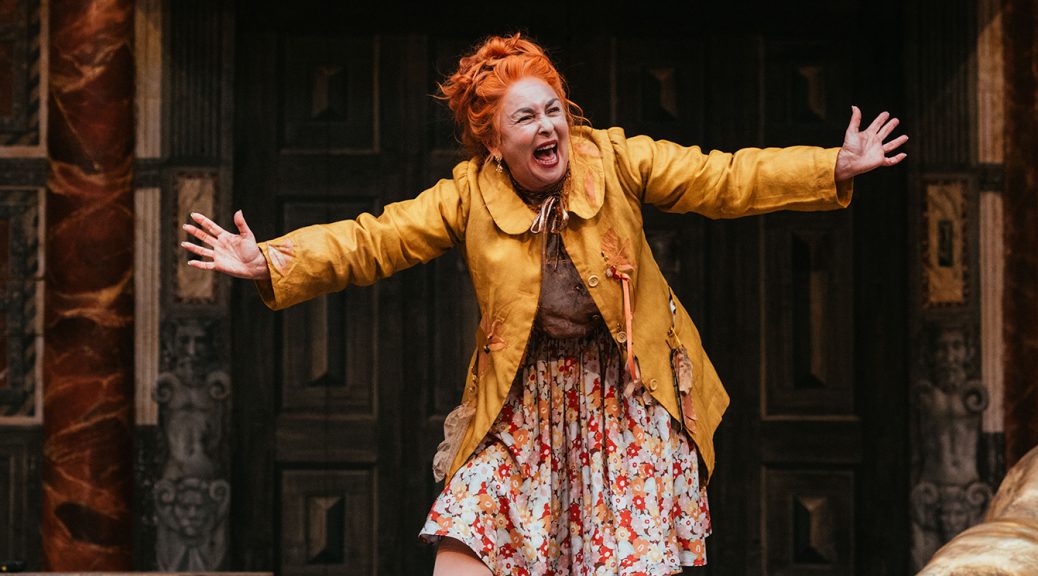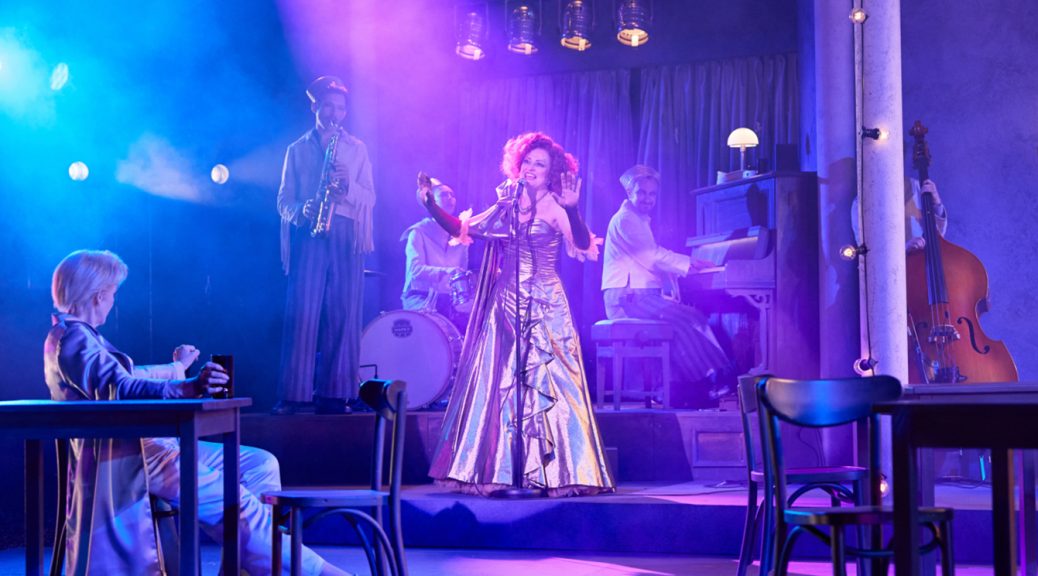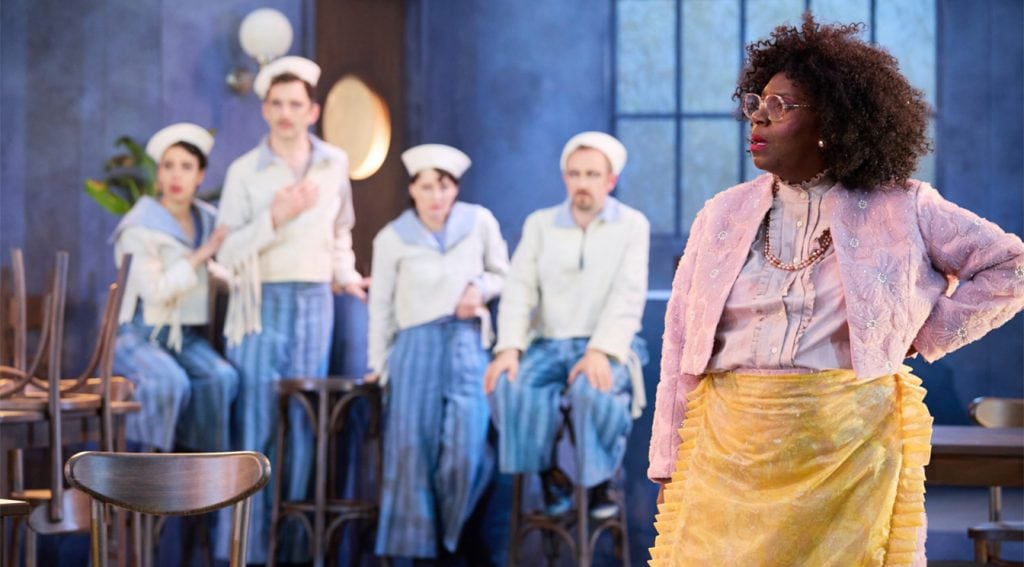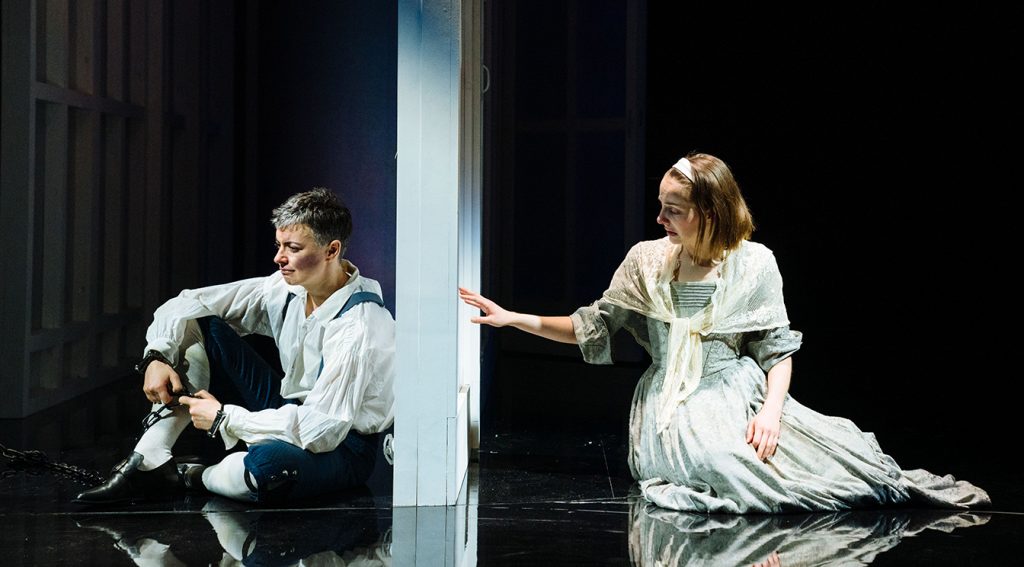The times are ripe for a new production of Shakespeare’s play set during the Trojan war. With so much conflict in the world, and too many posturing leaders, a lot of the piece seems sadly pertinent. Maybe it’s appropriate that the play also confuses – motives and actions are hard to fathom – and director Owen Horsley, who takes the helm here, doesn’t help us figure much out. You might regard that as frustrating. The production is full of flashy touches clearly intending to provoke thought, but they mostly just puzzle. Thankfully, Horsley gets at least one thing very right.
This is the director’s Globe debut, but his work fits happily here. Like it or not, shows on this stage demand broad performances. Popular approaches include crude physicality, a lot of music and audience participation – all present here. Maybe that’s why so much of this Troilus and Cressida comes across as jolly. Horsley goes all out for jokes, with every character made fun of, not unjustly. But of course, while there is a love affair going on, there’s also violence. Treating so much of the play as a satire isn’t nonsensical, but it does limit it. Neither the romance nor the drama quite works.
The casting has flaws. Kasper Hilton-Hille and Charlotte O’Leary give passionate performances in the title roles but there’s little chemistry between them and the former is unconvincing as a vengeful warrior. The Greeks and the Trojans are hard to distinguish – which might be deliberate – and those who stand out do not do so for good reasons. Changing the gender of several characters works well, though: Jodie McNee’s Ulysses is strong, while the show’s star is Samantha Spiro as ‘Auntie’ Pandarus, a truly grotesque creation with crazy overtones of a Carry Onfilm that the audience gets behind.
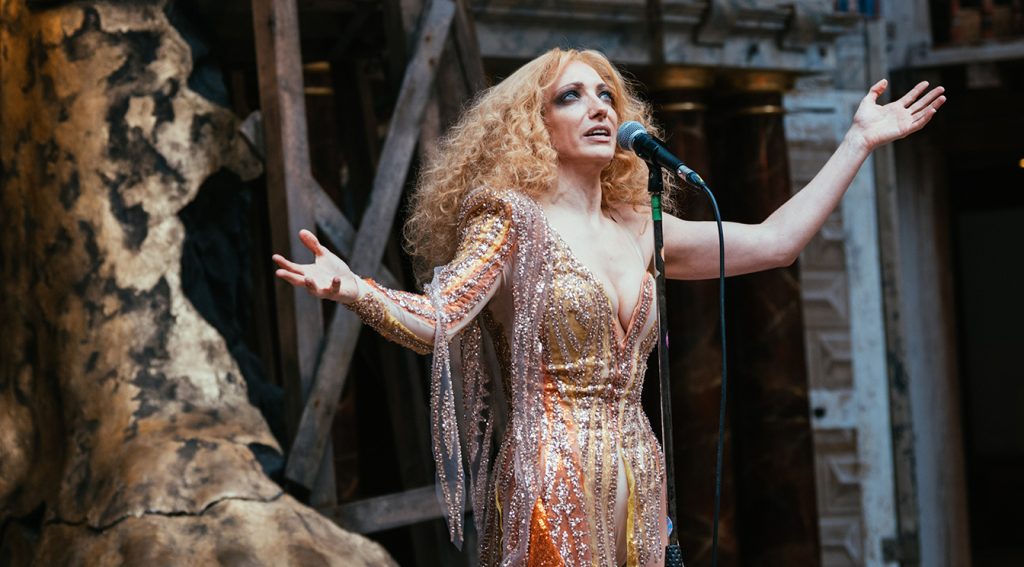
Spiro is excellent, but Horsley’s decision to give us a rather sweet version of the character brings complications. When the sinister arises it confuses(right from Cressida’s departure to the Greek camp, which Troilus seems far too OK with). Thankfully, this is offset with brilliant ideas about Thersites, a role Lucy McCormick combines with a powerful cameo as Helen. McCormick’s performance is unhinged and uncomfortable but brilliant. As a despairing cynic, losing her mind over all the sex and death she is among, Thersites knows that there are no heroes here and nobody to admire. All the cynicism in Shakespeare’s play lets rip and Horsley hits the mark.
Until 26 October 2025
Photos by Helen Murray

